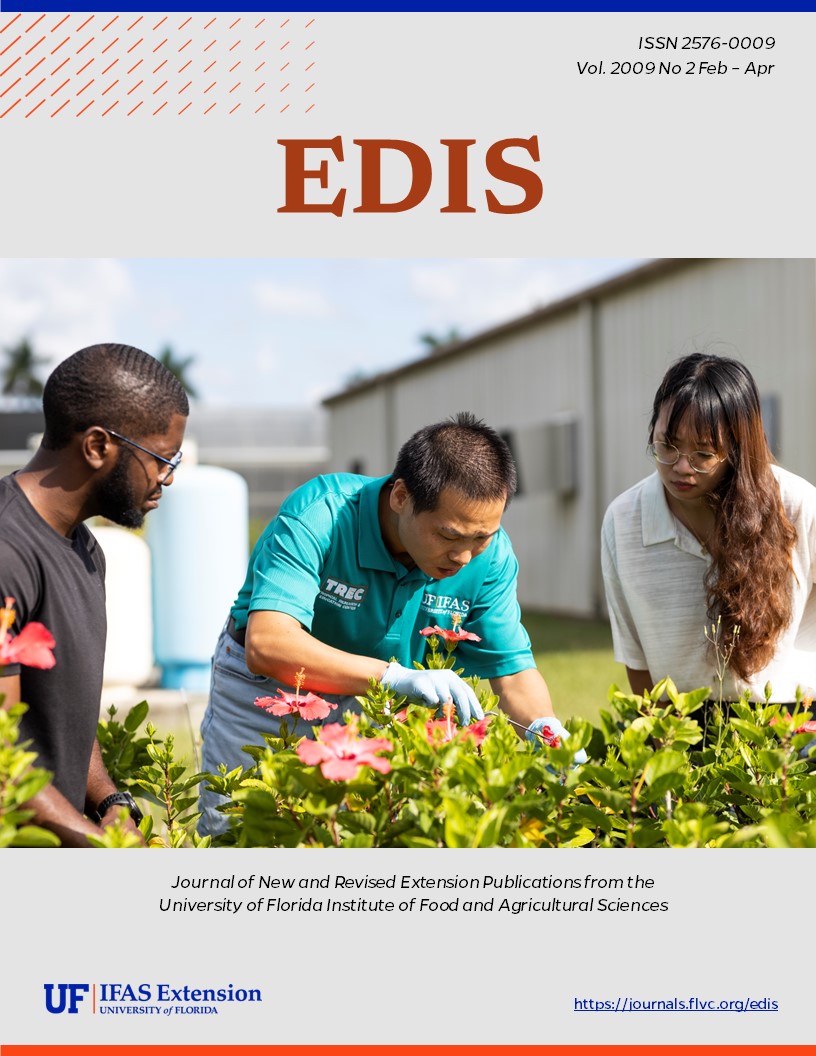Abstract
FOR-206, a 4-page fact sheet by Jennifer A. Seitz and Francisco Escobedo, explains tree pollen production, allergenicity ratings, and strategies to reduce pollen exposure. Includes references and a table listing 15 commonly used native trees and their OPALS ratings. Published by the UF School of Forest Resources and Conservation, February 2009.
FOR 206/FR268: Urban Trees and Allergies in North Florida (ufl.edu)
References
American College of Allergy, Asthma and Immunology (ACAAI). 2007. "Weather Forecasts Spring Pollen Allergy Severity." ACAAI, http://www.acaai.org/public/linkpages/Weather+Forecasts+Pollen.htm (accessed September 7, 2007).
Asthma and Allergy Foundation of America (AAFA). 2005. "Allergy Facts and Figures." AAFA, http://www.aafa.org/display.cfm?id=9&sub=30 (accessed September 7, 2007).
Jelks, M. 1989. Allergy Plants that Cause Sneezing and Wheezing. Tampa, FL: World-Wide Printing.
Meerow, A.W. and J.G. Norcini. 2003. Native Trees for North Florida (Circular 833). Environmental Horticulture Department, Florida Cooperative Extension Service, Institute of Food and Agricultural Sciences, University of Florida.
Ogren, T.L. 2000. Allergy-Free Gardening: The Revolutionary Guide to Healthy Landscaping. Berkeley CA: Ten Speed Press.
Zipperer, W., F. Escobedo, and J.A. Seitz. 2008. [In EDIS Review] Gainesville's Urban Forest Structure, Composition, Size, and Density (FORXXX). School of Forest Resources and Conservation, Florida Cooperative Extension Service, Institute of Food and Agricultural Sciences, University of Florida.

